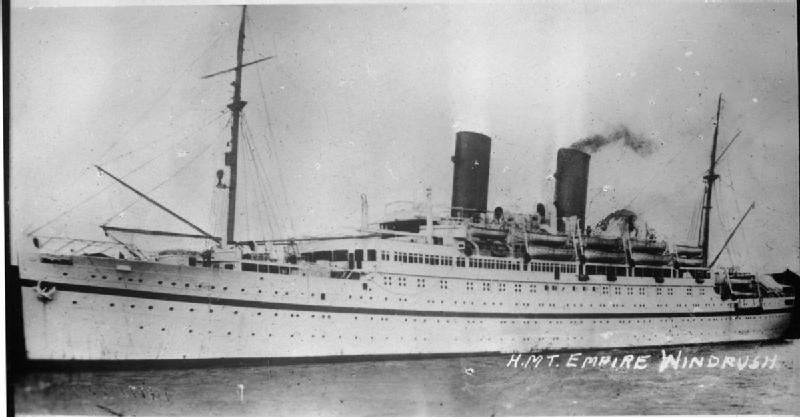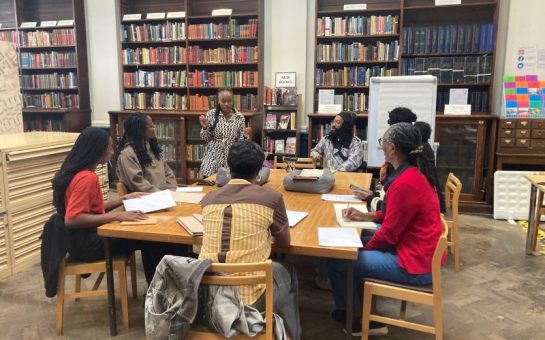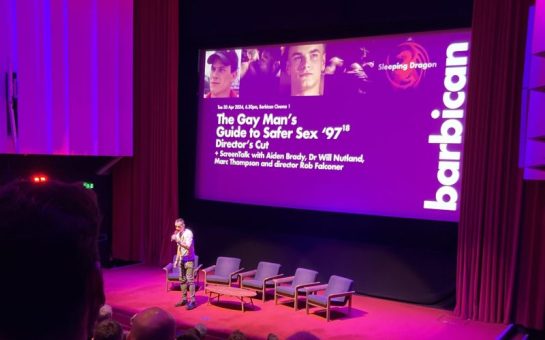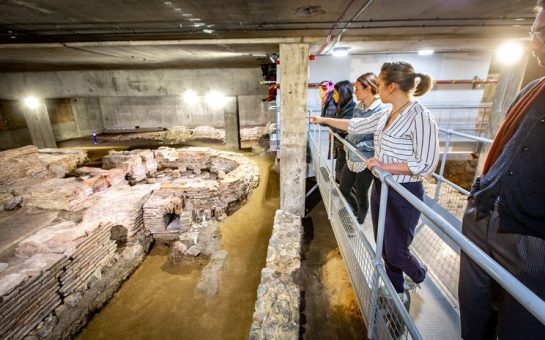“Will anyone who arrived at Tilbury aboard the SS ‘Empire Windrush’ on June 22 1948 from Jamaica please write to Sam King”, read an advert in the Weekly Gleaner on 24 December 1967.
What looks like a simple advertisement calling for fellow passengers of the ship Empire Windrush, is actually the origin of Windrush Day.
Since 2018, it has become a big day in the calendar which celebrates, commemorates and honours the Windrush Generation.
But many people don’t know that it has existed for decades already, and fewer still know who came up with the idea.
Sam King MBE arrived onboard the HMT Empire Windrush on 22 June 1948 with 1,026 other travellers.
Two decades later, he advertised for fellow passengers in the Weekly Gleaner to bring everyone together for the anniversary of their arrival in Tilbury Docks.
The first commemoration of the Windrush Generation took place.
From then on, he worked tirelessly to keep the ship and its passengers in the public’s memory, organised events and contributed to several BBC television Windrush programmes.
In 1995, he founded the Windrush Foundation together with Arthur Torrington.
The foundation celebrates the Caribbean men and women who served Britain in the Second World War, settled in the UK from 22 June 1948 after arriving on the Empire Windrush, and helped to rebuild a nation still recovering from the conflict.
As a foundation, they organised a reception with then Prince Charles and worked together with the Imperial War museum displaying pictures and stories of Windrush passengers.
They collaborated with Transport for London in 2024 and gave the Windrush line of the Overground its name.
Torrington said: “The people on the ship are a generation of their own because of their experience.
“They have stories of their own.”
What is essential to King’s idea of commemorating is ex-service men and women play a vital role.
Former RAF police officer Baron Baker said: “Many of those on the Windrush were ex-servicemen, and there was an immediate understanding between us.
“There was a greater feeling of togetherness among that generation of us than I have seen in any group I have come across.”
Baker already lived in London when the ship arrived and organised accommodation in the borough of Lambeth for those who did not have a place to stay.
King introduced the partner scheme which allowed black families to buy their own houses, and was elected first black mayor of Southwark in 1983.
Many of the veterans acted as pathfinders for the black community.
RAF Museum archivist Lucia Wallbank said: “The Windrush is often perceived as an arrival but for many of the people who were part of the RAF, it was more of a return because they had already been in Britain and served Britain.”
The term Windrush gained significance and also changed in how people defined it when the Windrush Scandal was exposed in 2018.
It was found thousands of Caribbean people had been wrongly denied rights and were deported despite having the right to live and work in the UK.
From then on, the Windrush name became a useful shorthand for the government to describe immigrants coming to the UK between 1948 and 1973.
The government publicly acknowledged the importance of Windrush Day and followed Windrush Foundation’s flagship to commemorate, although some believe King’s place as founder of the day has become overlooked.
In Hackney, like in other boroughs, this day is of great importance.
A lot of effort and energy goes into marking it, and the wider community is hugely involved.
Councillor Carole Williams, cabinet member for employment, human resources and equalities, said: “It’s at heart of what we’re doing in Hackney.
“From the beginning, our Windrush projects have been shaped by the community, by their voices, by their experience, by those directly affected by the scandal.”
Windrush Day has gone from commemorating the contributions of Windrush pioneers, in the sense of actual passengers of the ship, to celebrating the people who have been affected by the scandal.
However, Torrington claimed a commemoration as streetparty was disjointed and doesn’t take in regard the 20 years between 1948-68 which were shaped by a fight for justice and laying out paths for the black community.
He said: “Hackney has elevated local people as Windrush generation, although these people really didn’t experience those days.
“It’s commemorating the wrong people.”
Even though, it was a return for many, the pioneers daily lives were shaped by blunt and not so blunt racism.
Colin Grant, author of Homecoming: Voices of the Windrush Generation, said: “What saved the Windrush Generation was their enormous font of humour, and ability to turn up the collar of their coats and walk on when subjected to slights and reversals.”
Finding a job was one of many challenging tasks and the pioneers had to be prepared for rejection.
Charles Johnson told Grant: “Apparently I always was just a few hours too late.
“Boy, the Englishman can be the nicest man out when he is telling you no.”
Torrington believes it is the spirit of Windrush people identify with, which is to work tirelessly to overcome prejudice and build successful lives and communities.
He said: “We really want to show that this Windrush story is bigger than the government has been telling the public.”
Feature Image: Imperial War Museum, IWM (FL 9448)





Join the discussion